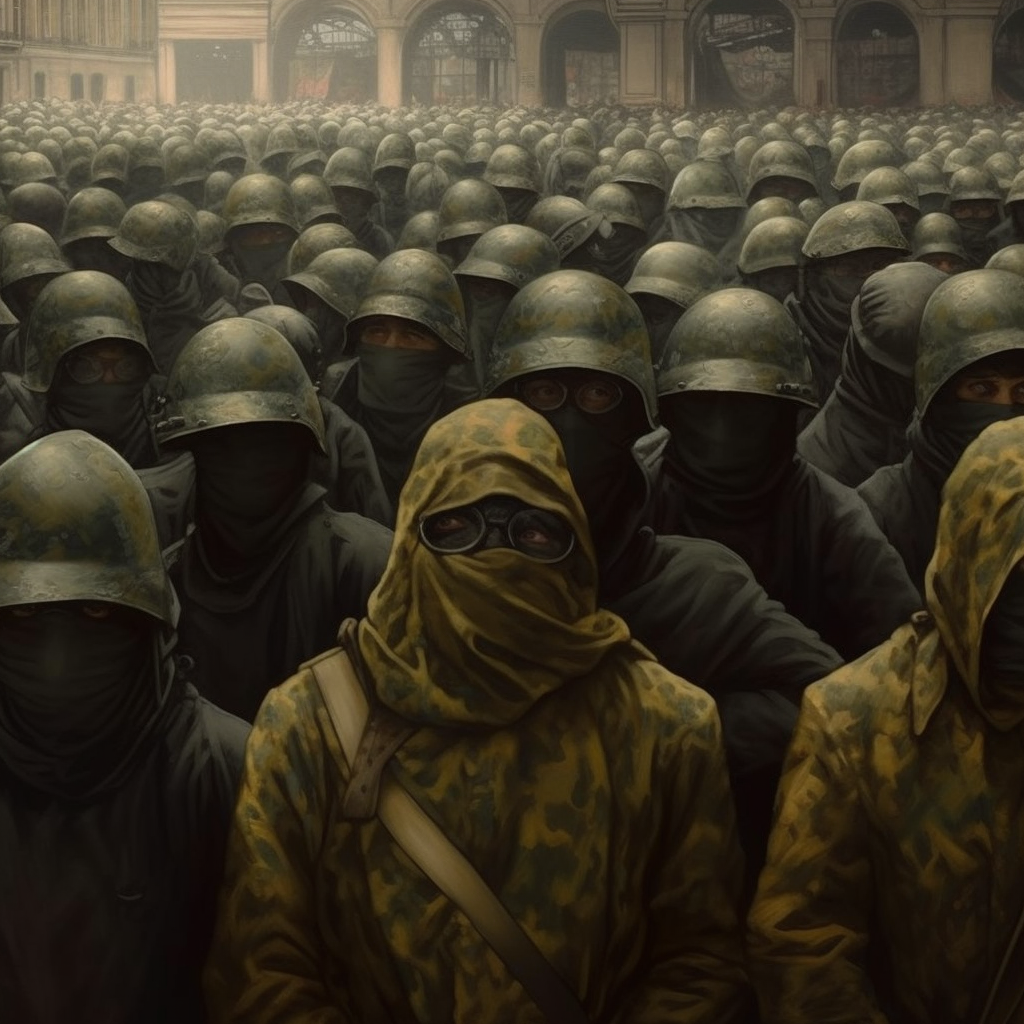There was a time when they came from the east.
Their arrival was as inevitable as the dawn, casting long shadows across the landscapes they traversed. A relentless tide, sweeping through town after town, leaving in their wake a peculiar silence that echoed through the deserted streets.
It began in Ukraine. Amongst the golden fields and beneath the cerulean skies, the humble folk thrived, their skin etched by the raw bite of winter and bronzed by the nurturing summer sun. Yet, with the coming of the eastern tide, it was as though an unseen hand had drawn a frosty curtain over the land.
They moved through Ukraine neither with visible cruelty nor distinct kindness; they simply were, impersonal and impartial as the elements. The wind did not ask permission to howl, nor the ocean to roar; they simply existed as forces of nature.
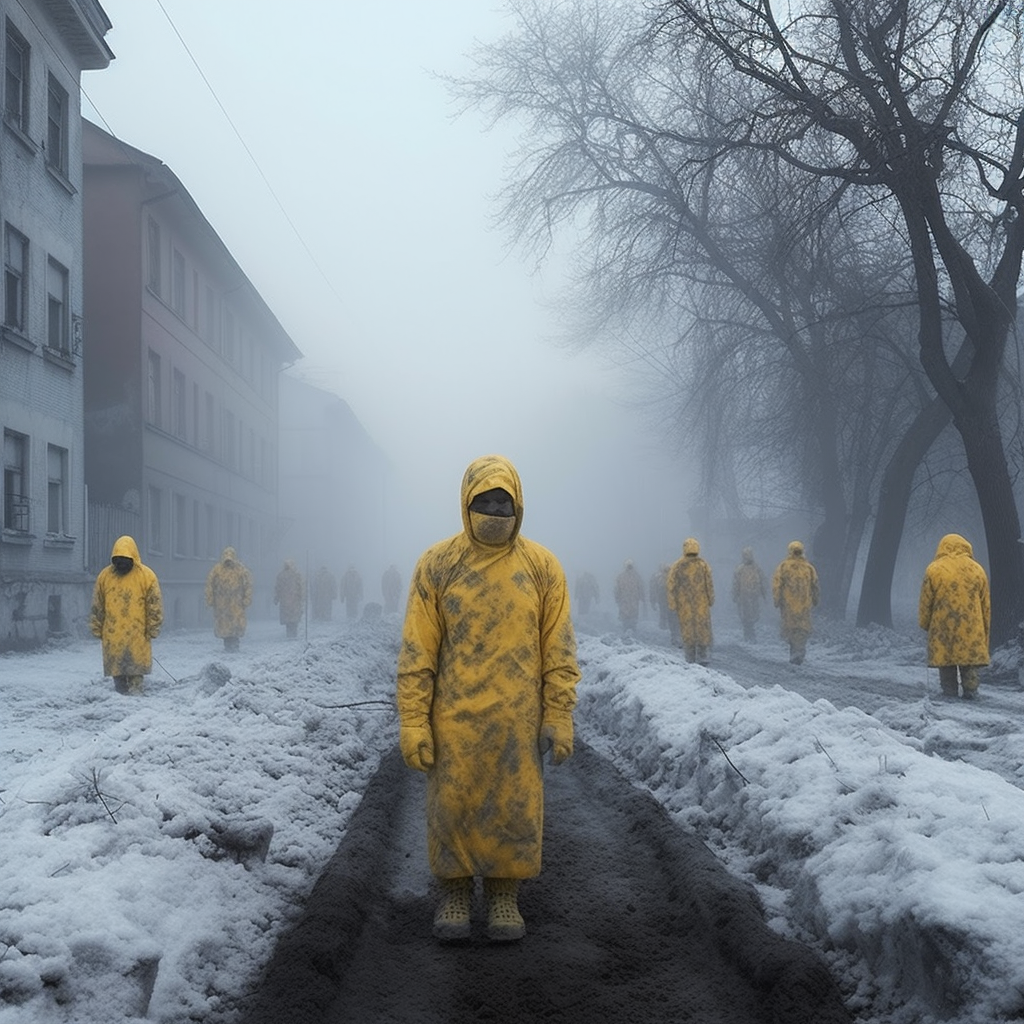
In the face of this reality, the people of Ukraine responded not with outcry but with a quiet, resolute dignity. Their lives, wrapped in the worn threads of their past, were packed away into ragged suitcases and weathered burlap sacks. The dawn found them departing from the familiarity of their hearths, embarking on an unchosen journey towards an uncertain sanctuary.
And then, their journey brought them to Poland. This land, steeped in history, was home to a people whose strength was as legendary as the ancient oaks that dotted their landscape. The Polish spirit, tried and tested by the harshest winds of fate, had a resilience that weaved through the very fabric of the nation, a thread surviving through every tribulation.
Yet, as they arrived, it was as though a shroud had been draped over this indomitable spirit. The once lively squares that echoed with the laughter of children and the banter of merchants were now eerily silent, the cobbled streets only whispering with the fleeting touch of the wind. The nation, like a painting left in the rain, seemed frozen, its colours seeping out, its people retreating westwards in search of safety.
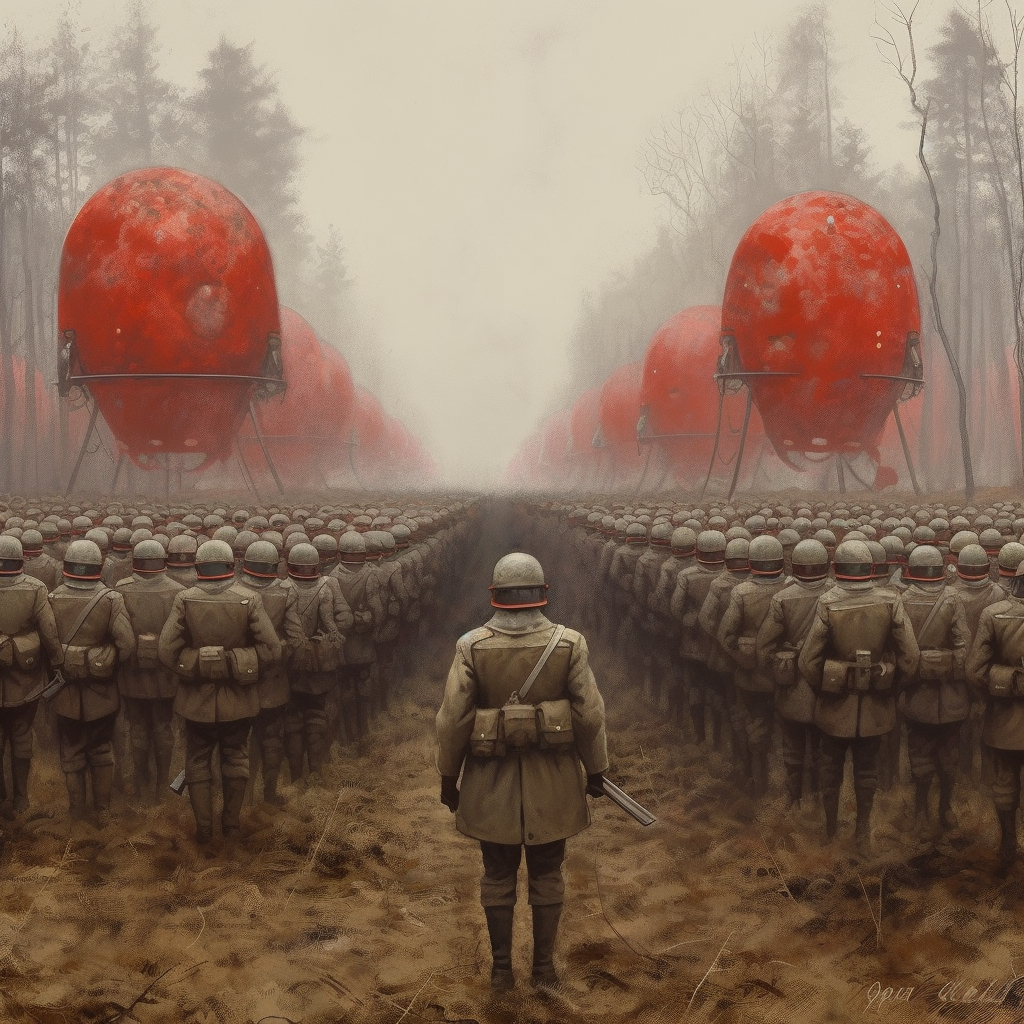
Poland, the once vibrant heart of tradition and culture, was left like an abandoned stage after the curtain fall, the echoes of its play carried on the wings of the fleeing sparrows, over the deserted marketplaces and along the labyrinthine lanes. With a steadfast quietness, it awaited the next act in this unprecedented drama.
Their ceaseless march continued towards the heart of Europe, Germany, where they encountered the same inescapable destiny. A land of industrious souls and towering citadels, of people whose ethos was defined by determination and resourcefulness, found itself facing the formidable tide from the east.
The grand cities, testimonies to the human spirit’s ability to create and to endure, began to lose their lustre under their touch. It was as though an unseen hand had picked up an eraser and started to wipe away the life that had filled these urban canvases. Even the monuments, those stalwart sentinels of human endeavour, began to feel the uncanny emptiness creeping in.
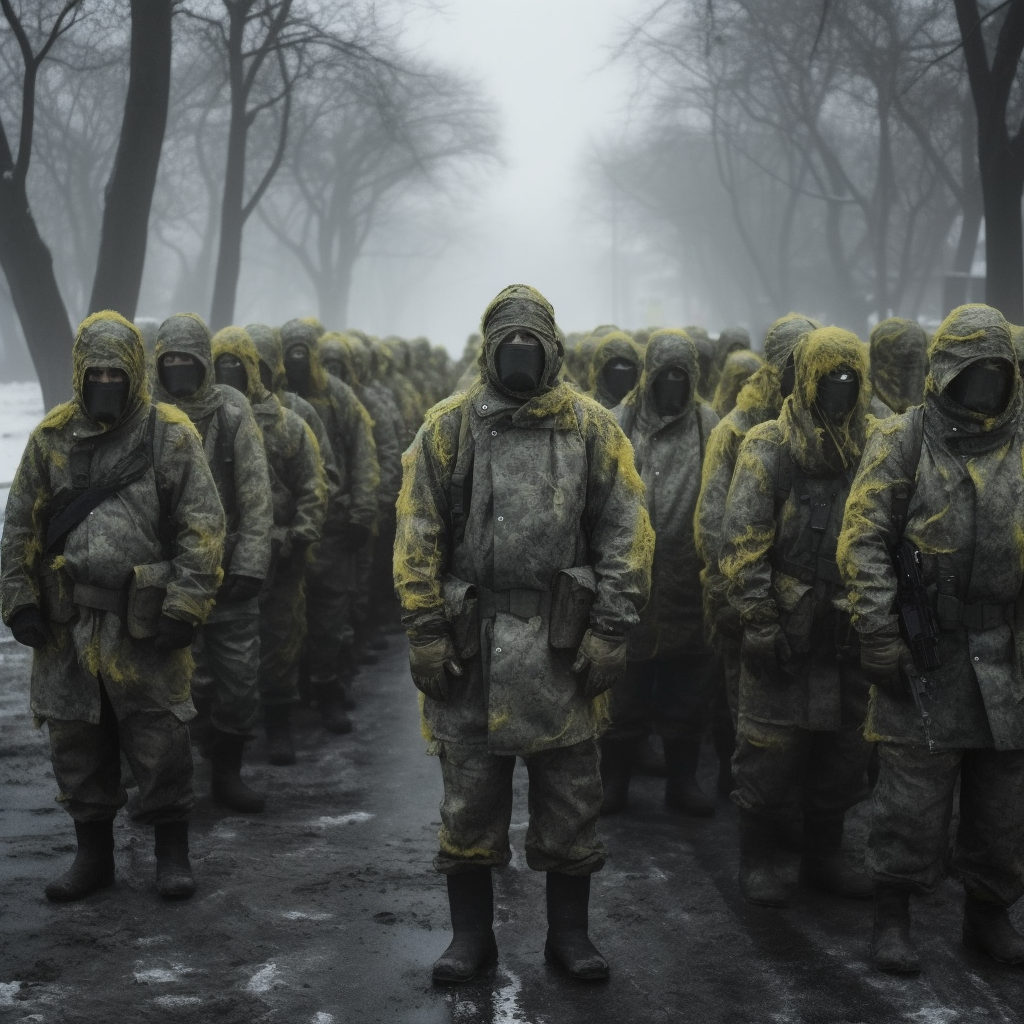
The essence of Germany, the vibrant heart of its existence, seemed to dissipate under the weight of their presence. And the Germans, those sturdy individuals known for their steadfastness, found themselves swept onto the same path as their eastern neighbours. Their eyes, usually filled with the clarity of purpose, were now filled with the same uncertainty, the same fear. They joined the growing river of displaced souls, all driven by the undying hope of safer shores.
Their march did not halt at the borders of Germany; it penetrated deeper into the heart of Europe, finally descending upon France. The silhouette of the Eiffel Tower, the emblem of French elegance and defiance, became a stark figure against the once-vibrant skyline, now draped in an unusual pallor. Like a beacon amidst the tempestuous sea of change, it stood, resolute yet solitary.
The boulevards of Paris, the sinews that coursed with the lifeblood of the city, were reduced to empty veins under their omnipresent gaze. Once throbbing with the rhythm of Parisian life – lovers stealing kisses, artists capturing beauty, philosophers debating life – these avenues were now cloaked in an unnerving quietude.
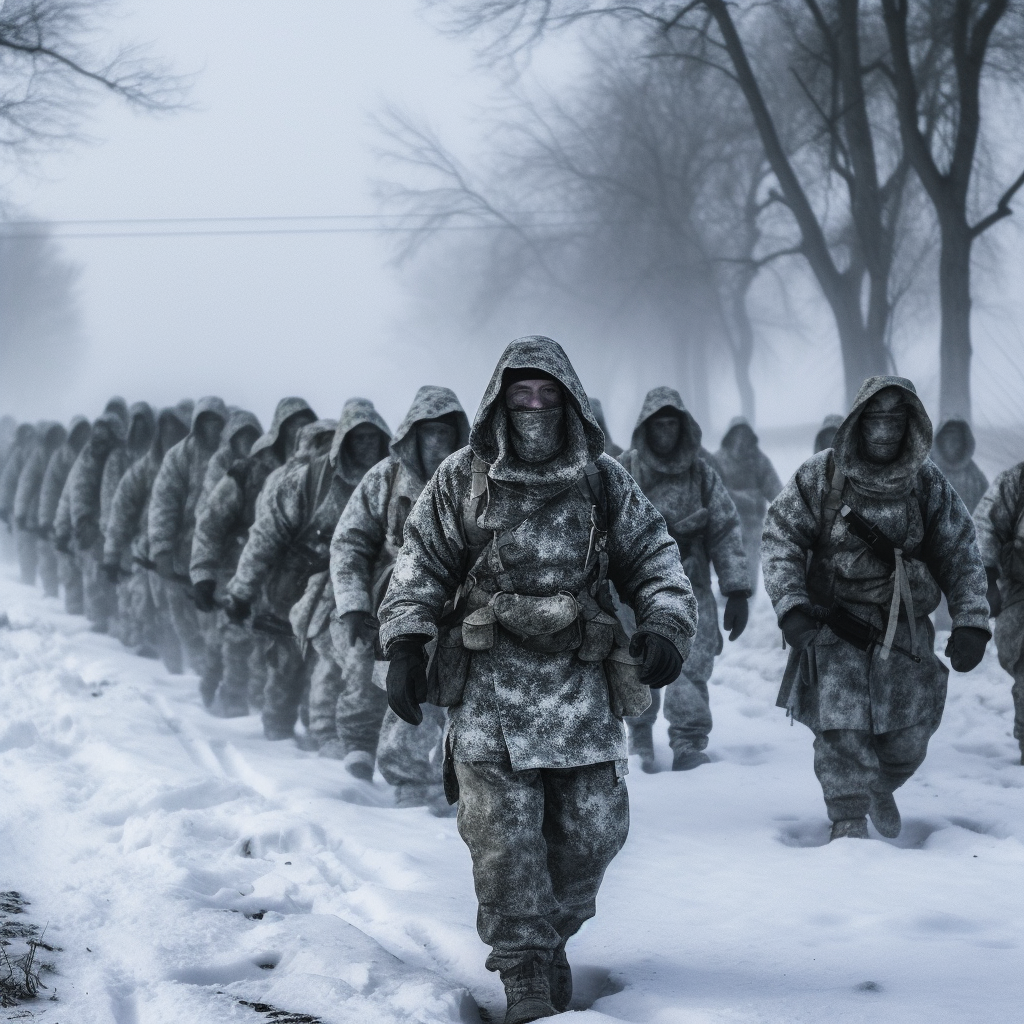
The French, known for their joie de vivre, their adoration of art, beauty, and the intoxicating dance of life, packed their dreams and hopes like fragile keepsakes. The colourful palette of their existence was folded away, only to blend with the shared hues of the refugees who had walked this path before them. A vibrant tapestry of dreams, threaded with hope and anxiety, began to take shape, undulating with the winds of change.
And so it went, country after country succumbing to the march from the east, until the refugees found themselves at the end of their odyssey in Portugal. The final beacon in the gathering darkness, where the scent of the sea blended with the aroma of hope and defiance. Portugal, a nation rooted in the tales of the sea, its people known for their explorers’ spirit, found itself the last bulwark against the tide.
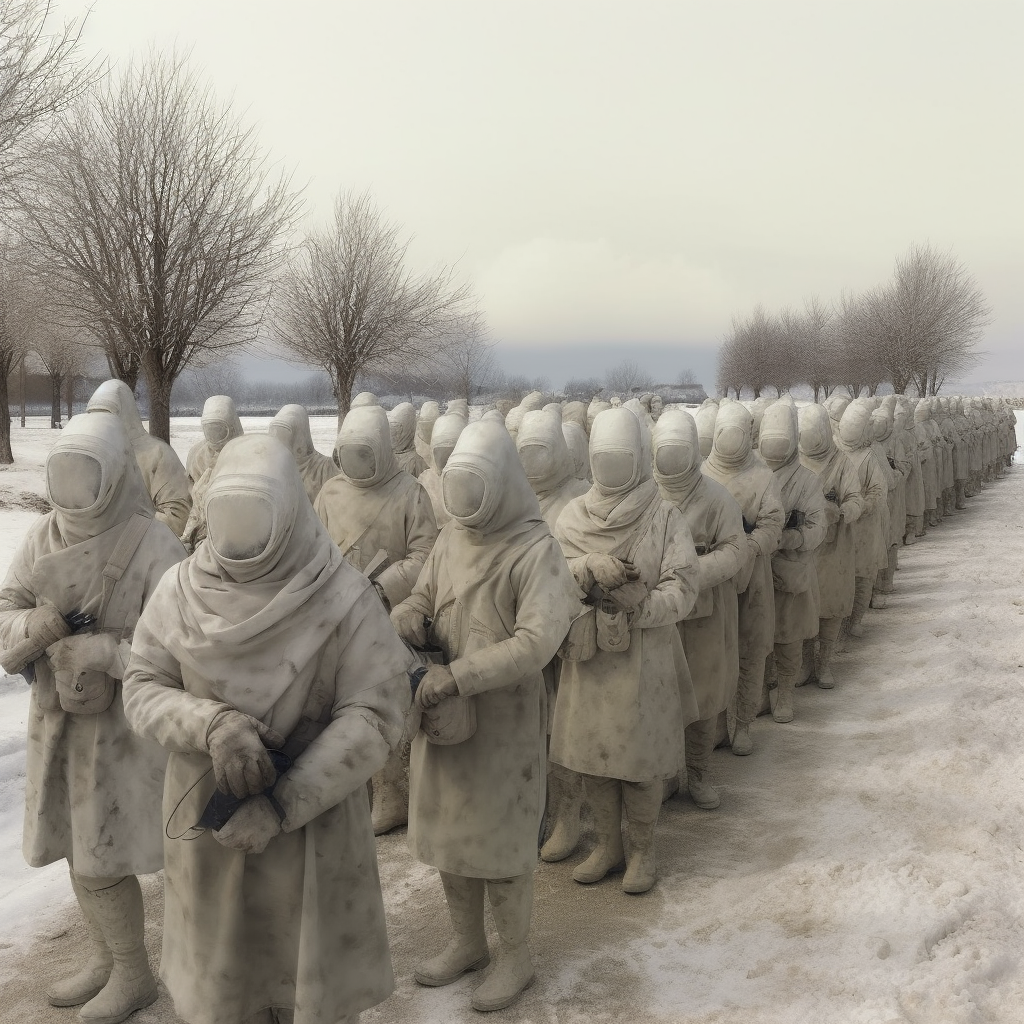
The people of Europe, now united in their refuge, watched as the sunset painted the skies above the Atlantic with hues of hope. Stories of their homes, their lost countries were shared by firelight, giving birth to a new community bound by shared experiences and a common threat. Portugal, once a corner of the continent, had become the centre of their world.
And so, they waited. For the dawn and the coming storm. With the setting sun in the west and the unseen threat from the east, they stood ready. The last voices of Europe, singing a quiet song of defiance, carried on the wind that swept over the Atlantic. A song of hope that whispered of a dawn yet to come, where they would no longer be the displaced, but the returners. The reclaimers of their homeland.
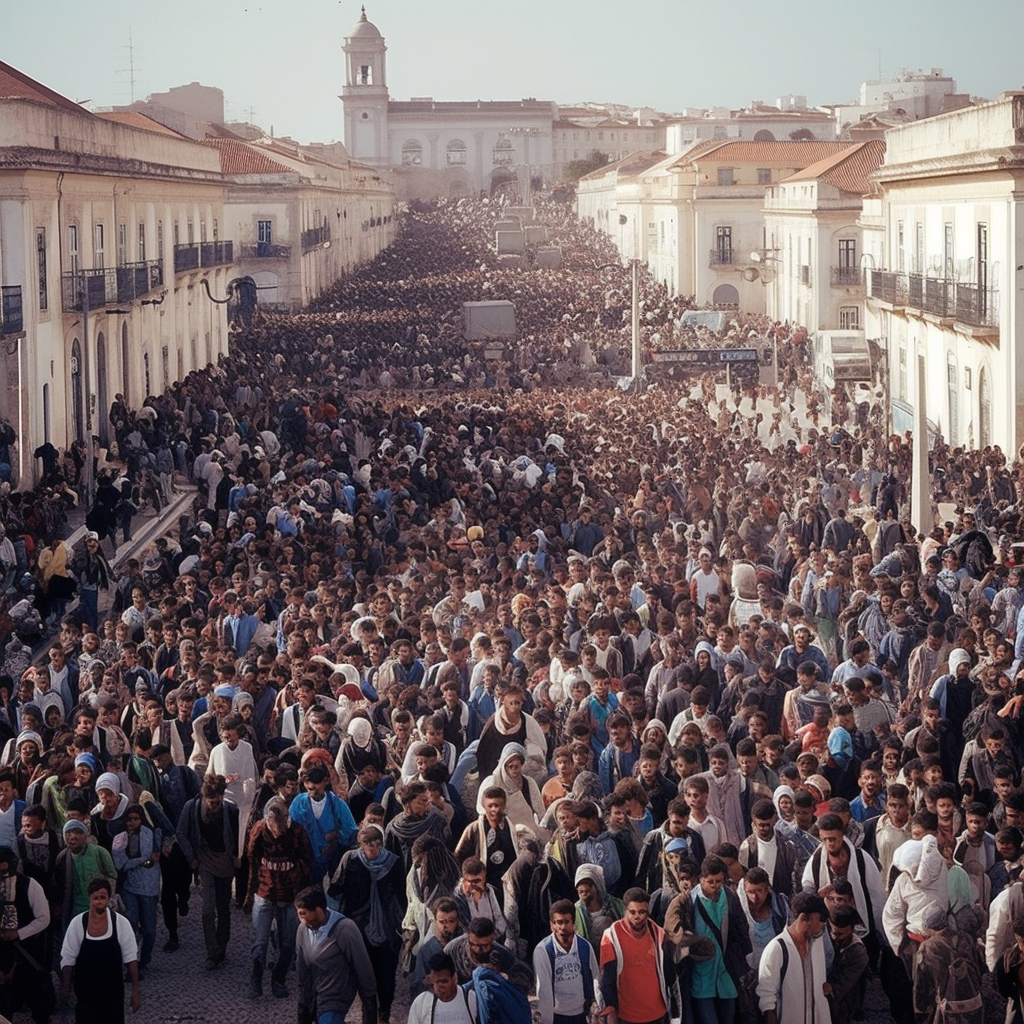
All images generated using Midjourney
